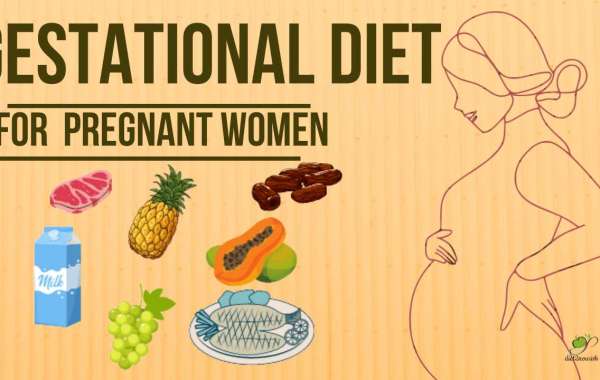Gestational diabetes occurs when blood sugar levels become elevated during pregnancy, and it requires careful dietary management to prevent complications.
Understanding Indian Diet for Gestational Diabetes
Gestational diabetes is a type of diabetes that develops during pregnancy. It occurs when the body cannot produce enough insulin to meet the increased demands, leading to elevated blood sugar levels. Proper management is essential to prevent complications such as macrosomia (large baby), preterm birth, and preeclampsia.
Dietary Guidelines for Gestational Diabetes:
Regular and Balanced Meals: Consume three main meals and two to three snacks throughout the day to maintain stable blood sugar levels.
Control Carbohydrates: Monitor carbohydrate intake by choosing complex carbohydrates that have a lower glycemic index (GI) to prevent rapid spikes in blood sugar. Examples include whole grains, legumes, and non-starchy vegetables.
Lean Proteins: Include lean protein sources like poultry, fish, tofu, and legumes in your meals. Protein helps stabilize blood sugar and supports fetal growth.
Healthy Fats: Opt for sources of healthy fats such as avocados, nuts, seeds, and olive oil. Limit saturated fats and trans fats found in fried and processed foods.
Fiber-Rich Foods: Incorporate high-fiber foods like leafy greens, broccoli, and beans to help control blood sugar levels and maintain digestive health.
Portion Control: Be mindful of portion sizes to avoid overeating and excessive calorie intake.
Stay Hydrated: Drink plenty of water to prevent dehydration, especially if you experience frequent urination due to gestational diabetes.
Sample Indian Diet Plan for Gestational Diabetes:
Note: Consult with a healthcare provider or registered dietitian to personalize your diet plan based on your individual needs and blood sugar levels.
Breakfast:
- Two small whole wheat dosas or two wheat rotis.
- A bowl of sprouts or moong dal.
- A serving of plain yogurt.
- A cup of herbal tea or black coffee (without sugar).
Mid-Morning Snack:
- A small apple or a serving of papaya.
Lunch:
- A portion of brown rice or quinoa.
- A serving of dal (lentil curry).
- A mixed vegetable sabzi (curry).
- A small salad with cucumber and tomatoes.
- A serving of yogurt (curd).
Afternoon Snack:
- A small bowl of mixed nuts and seeds (unsalted).
- A cup of herbal tea.
Dinner:
- Two wheat rotis or a small portion of brown rice.
- Grilled or baked fish or chicken (lean protein).
- A serving of sautéed spinach or other leafy greens.
- A side of cooked carrots and beans.
- A small salad with a sprinkle of flaxseeds.
Evening Snack:
- A serving of Greek yogurt with a drizzle of honey.
Bedtime Snack (if needed):
- A glass of warm milk (without sugar).
Lifestyle Recommendations:
Regular Physical Activity: Engage in regular, moderate-intensity exercise as recommended by your healthcare provider. Activities like walking and prenatal yoga can help control blood sugar levels.
Blood Sugar Monitoring: Monitor your blood sugar levels as directed by your healthcare provider to ensure they are within the target range.
Stress Management: Practice stress-reduction techniques such as deep breathing, meditation, and relaxation exercises to keep stress levels in check.
Medication (if prescribed): If diet and exercise alone cannot control your blood sugar, your healthcare provider may prescribe medication or insulin injections. Follow their instructions carefully.
Regular Prenatal Check-ups: Attend all scheduled prenatal check-ups to monitor the health of both you and your baby.
Educational Support: Consider joining a gestational diabetes support group or seeking guidance from a registered dietitian specializing in gestational diabetes for ongoing support and education.
In conclusion, Indian Diet for Gestational Diabetes through a well-balanced Indian diet is essential for the health of both the mother and the developing baby. By following dietary guidelines, incorporating a variety of nutrient-rich foods, monitoring blood sugar levels, and adopting a healthy lifestyle, women with gestational diabetes can effectively manage their condition and reduce the risk of complications during pregnancy and childbirth. It's crucial to work closely with healthcare providers to ensure a personalized and safe approach to gestational diabetes management.








